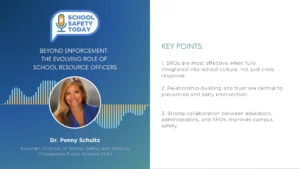Rethinking Online Education with Virtual Event Platforms
The escalation and global impact of COVID-19 catalyzed a sudden shift to the university experience as we know it. By March 2020, 14 million students pivoted to online education. College enrollment in the United States is now down 20 percent going into the fall 2020 semester, and typical activities such as sports and on-campus events have been canceled. This new reality has pushed educators across the United States to rethink how they’re delivering online education and implement new ways to engage students during this crossroads.
Related content: Faculty approaching remote learning with uncertainty
For most classrooms, standard video conferencing formats are a lackluster replacement for dynamic in-person learning. “Zoom fatigue” and the lack of one-on-one interaction in online classrooms has had a detrimental effect on students’ ability to successfully comprehend information.
In the wake of the uncertainty of the fall 2020 semester, without a scalable answer to online education, how can universities recreate the collegiate experience online?
Virtual event platforms provide a unique channel for universities to successfully bridge the gap between the current state of online education and returning to an in-person format in the future, allowing for students to regain the ability to social network and collaborate.
Rebuilding a new kind of online classroom
By going beyond traditional video conferencing, there’s an opportunity for educational systems to create a virtual environment with inherent collaboration and better aptitude for learning.
The biggest gripe universities have within the new era of remote learning is an inability to collaborate within video conferencing – in one survey, 65 percent of university students reported that “opportunities to collaborate with other students on coursework” were lacking in their online classes. Conversely, when instructors provided the ability to break into groups during a live class, student satisfaction went up 25 percent.
Traditional video conferencing platforms emerged as a simple alternative to in-classroom learning, Many factors, including pass fail grading, “Zoom bombing”, and a lack of connection have left instructors with a more disoriented classroom experience – three-fifths of instructors reported they’ve struggled to keep students engaged.
One big benefit: the classroom and events are similar in many ways, with pre-determined presentations, tight schedules and clear objectives – virtual event platforms have this thinking built into their product, providing a plug-and-play option for educators shifting to an online format.
Maintaining a university network
Beyond the classroom, a collegiate experience is all encompassing and provides students the ability to network and connect with their peers–a massive missed opportunity for students that have shifted to remote learning environments.
With most universities now fully remote, for many students, activities such as job fairs, mentorship, and networking events have for the most part been canceled without an acceptable replacement. Some universities have turned to various video and chat-based options to replace these offerings, but they often fail to provide the same organic relationship building that an in-person event does.
As the fall 2020 semester is already off to a rocky start, universities have a unique opportunity to salvage the networking opportunities that are often offered to students by utilizing virtual event platforms.
From running resource fairs, conferences, speaking panels, to networking events, virtual event platforms offer a similar experience at a fraction of the cost, with minimal logistical conflicts, and can be made available to all students – both domestic and international. Due to low overhead costs and minimal set-up, universities can create brand new virtual experiences for their students, bring in speakers from all over the world, and create more opportunities for genuine human interaction.
While the typical back-to-campus model may be in flux for this Fall, universities can source creative ways to engage their student bodies in academia and extracurriculars.
Universities have been placed in a tough spot with the drastic shift to online education, and while most have managed thus far, virtual event platforms provide an important outlet for educators who are looking to reinvigorate their students and revive the human connections that are integral to campus-life.









